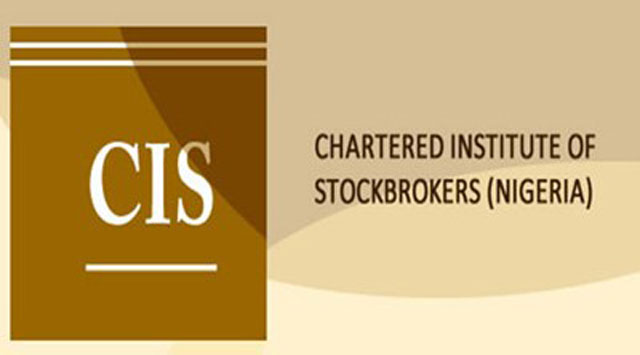The Chartered Institute of Stockbrokers (CIS) has listed low investors participation and illiquidity as the major challenges facing operators in the nation’s capital market, stressing the need for consistent foreign exchange policies in line with the global best practices.
According to the President of the institute, Oluwaseyi Abey, while the regulators and stockbrokers have been working hard to create new products to fast-track market growth, the buy side of the market remains weak, especially from the local investors.
Abey, who spoke to The Guardian, submitted that the current business environment requires creativity and resilience from both stockbrokers and other market stakeholders.
“Stockbroking firms have also had to grapple with spiraling costs arising from the recently introduced minimum operating standards. Investors’ confidence is still low as a result of massive losses arising from the 2008 global recession, although this is being addressed.
“Quoted companies are also going through challenging times with regard to rising costs. This is affecting their dividend paying ability. It is indeed a trying time for the stockbrokers. But the period also called for creativity and resilience for all stakeholders.”
He argued that was an urgent need for government to focus more on the capital market and craft policies that will make the market thrive for local and foreign investors.
He pointed out that Nigeria’s natural endowments still make the country very attractive investment destination, but however, added that this must be strategically supported by well thought-out policies.
“I must be quick to add that as long as the financial system exists, funds must be mobilized from the surplus economic unit to the deficit one. Nigeria’s natural endowments still makes her a very attractive investment destination.
“However, this must be strategically be supported by well thought-out policies. The truth of the matter is that many foreign investors still regard Nigeria as a good investment hub because of our current political stability.
“There will be further encouraged if we also have some consistency with our foreign exchange policies in line with the global best practices. At the heart of the capital market is the issue of participation of local investors. Expectedly, it is the local investors who ultimately will bring stability to the equity market.”
The CIS boss added it has become imperative for the Federal government and other stakeholders to address the need to boost local investors’ participation in the market.
On whether the adoption of a more flexible foreign exchange policy will boost the stock market, Abey said: “Yes, I think so. This is because the capital market is the barometer of the economy. Its performance mirrors the performance of the economy. When the economy is doing well, the capital market is boosted.”
“Research has shown that developing countries are relatively better off under flexible exchange rate regimes and that faster economic growth is associated with real exchange rate depreciation.”
“This means that recent introduction of flexible exchange rate policy is expected to drive economic growth, which will boost the capital market,” he added.
Concerning the recent recapitalisation of capital market operators, the CIS boss pointed out that the exercise is impacting positively on the development of the market as it has enhanced research and product development of the market as well as a more efficient information and communication technology base.
He added that the new capital injections would enable stockbroking firms acquire requisite information technology infrastructure, maintain quality human resources, fund research and training and explore creative initiatives in product development and services.
(The Guardian)













Low Investors Participation Limiting Market Rebound: The Chartered Institute of Stockbrokers (CIS) has listed… https://t.co/PsPLbJlneu